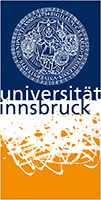Fellows
 Marisa Gasteiger
Marisa Gasteiger
Institut für Christliche Philosophie
Universität Innsbruck
Karl-Rahner-Platz 1
A-6020 Innsbruck
Christian Prayer - The attempt of the praying Person for a deepened relationship to the one God that is three Persons
In my PhD project I am dealing with Christian prayer, which I understand as an attempt of the praying person for a deepened relationship to the one God that is three Persons. Christian prayer is not only of exceptional meaning for the religious life of individual Christians, but also for their communal life. Praying to the one God who is three Persons is central across confessional differences and therefore becomes a possible answer to the question, what constitutes a Christian. It is therefore all the more surprising to find relatively few philosophical and fundamental theological works which deal with this important topic. The aim of my PhD project is to make a philosophical and fundament theological contribution to this topic. The focus on Christian prayer is important, as prayer is connected indivisibly with the concept of God of the praying person, which is why I will also refer to the implications for the doctrine of God. Prayer is thus understood as a religious act which aims at a deepened relationship to something transcendent – to the Christian God who is three Persons.
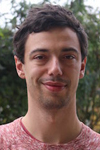 Jacob Hesse
Jacob Hesse
Institut für Christliche Philosophie
Universität Innsbruck
Karl-Rahner-Platz 1
A-6020 Innsbruck
Metaphor, Context and religious Language
In my PhD dissertation I deal with the phenomenon of metaphor. I argue that the key to understand metaphors properly lies in a distinction between the linguistic structure of the expressions which are interpreted metaphorically and the structure of the cognitive processes on the basis of which metaphors are interpreted. Concerning the linguistic structure I argue that metaphors have a certain kind of context-sensitivity which they share with indexicals such as „I“, „here“ and „now“. The expressions which are interpreted metaphorically gain, as I claim, the property of indexicality. The structure of the cognitive processes associated with metaphors should according to my line of reasoning be described as similarity-based. For this conclusion I draw on insights from contemporary research in cognitive science and psycho-linguistics. According to my view metaphors are established, if the linguistic structure of indexicality is combined with similarity-based processes of interpretation.
 Simon Kittle
Simon Kittle
Institut für Christliche Philosophie
Universität Innsbruck
Karl-Rahner-Platz 1
A-6020 Innsbruck
Divine and human freedom (working title)
I am interested in the nature of divine and human freedom, the connections between the two, and the extent to which committing oneself to a position on either of these demands that you hold to certain other theological positions or doctrines (particularly in the area of Christology). Freedom is one of the key aspects of personhood, so if God is conceived of as a person, then understanding the nature of freedom will have a number of implications for understanding God and how he acts. But how to understand freedom? Does God himself have libertarian freedom? Is it even sensible to talk of God making decisions? Considerations of divine rationality or omniscience might speak against this. On the other side, what is the relationship of God's activity as creator and sustainer to particular choices made by humans (especially as they are understood by libertarians)? I seek to investigate these and similar questions by bringing to bear on them recent work in the philosophy of action and causation.
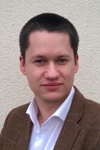 Martin Klinkosch
Martin Klinkosch
Lehrstuhl für Philosophische Grundfragen der Theologie
Universität Regensburg
Universitätsstr. 31
D-93053 Regensburg
Theistic Activism and Thomas Aquinas’ concept of God (working title)
Positions that can be summarized by the term “theistic activism” extend God’s creative action to abstract entities in order to preserve God’s aseity and sovereignty in the sense of a classical theism. In contrast, those positions named “platonic theism” assume a reality entirely independent from God thereby modifying classical theism. In my thesis I argue that both groups of theories, and particularly “theistic activism”, face fundamental objections that finally lead to considering a different perspective. Taking recourse to philosophical resources of Thomas Aquinas’ system of thinking there seems to be a promising point of view which can be very likely subsumed under the term “deity theory” locating the ontological implications of modal propositions in God himself.
 Benjamin Mitterrutzner
Benjamin Mitterrutzner
Lehrstuhl für Philosophische Grundfragen der Theologie
Universität Regensburg
Universitätsstr. 31
D-93053 Regensburg
John Schellenberg’s concept of religion and God (working title)
In my PhD project I am dealing with John L. Schellenberg`s philosophy of religion focusing on his religious skepticism. On the one hand, I am going to examine his skepticism and whether it can be held consistently and whether a global skepticism can be avoided. On the other hand, the presuppositions of Schellenberg`s skepticism and the consequences for his philosophy of religion will be pointed out: Which concept of belief and God is postulated and how are they correlated to the classical theistic conception? And which type of connection can be found between the skeptical result and Schellenberg`s suggestion of a non-doxastic faith?
 Jan Levin Propach
Jan Levin Propach
Professur für Philosophie
Universität Augsburg
Universitätsstraße 10
D-86159 Augsburg
Ontological concepts of possible world semantics and their compatibility with classical theism (working title)
Modal realism is a very powerful position within the metaphysics of modalities. In my PhD thesis I examine modal realisms by David Lewis, Robert Stalnaker and Gottfried Wilhelm Leibniz and try to make them compatible with classical theism. The ontological concepts of modal realism about possible worlds and possibilia as worldbound individuals seem to contradict the doctrine of divine simplicity, the core-attribute of classical theism. A conception of God as an abstract particular, a trope, could solve the problem.
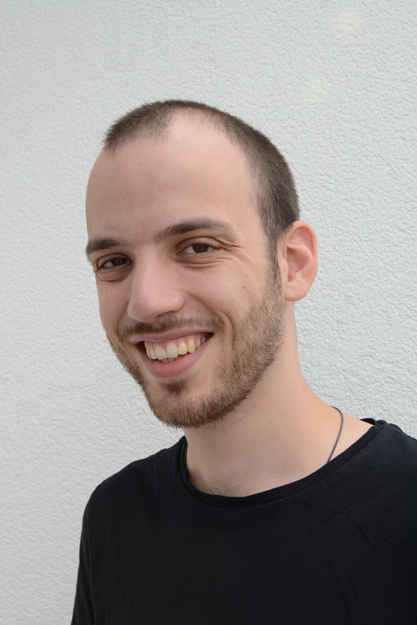 Georg Sauerwein
Georg Sauerwein
Institut für Christliche Philosophie
Universität Innsbruck
Karl-Rahner-Platz 1
A-6020 Innsbruck
Beauty as a Criterion of Theory Evaluation in Physics and its Implications for the Doctrine of God (working title)
In physics it is common to use beauty as an indicator whether a theory might be worthwhile to pursue. Some physicists even use beauty as a criterion for the truth value of a theory. This is connected to the idea that fundamental physical laws are mathematically beautiful. A famous representative of this view was Paul Dirac.
These ideas have been received by some authors in theology, for example by John Polkinghorne, who thinks beauty and intelligibility of the fundamental laws of nature can only be explained by man being created in he image of God, who created the world. There is also some discussion in the philosophy of science about the role of aesthetic criteria in the evaluation of theories, which has not sufficiently been taken into account by the discussion in theology. My goal is to use this philosophical discussion to reflect the theological theories and develop them further, with special regard to the implications concerning the nature of God.
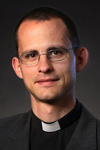 Johannes Stoffers
Johannes Stoffers
Hochschule für Philosophie
Kaulbachstr. 31a
D-80539 München
The God-World Relationship and God, Conceived for Himself (working title)
My name is Johannes Stoffers, I’m 33 years old; I am lecturer at the Munich School of Philosophy in Germany. After a number of years out of the research context, I re-entered philosophy in autumn 2015. Since the beginning of my studies, I am especially interested in the questions bordering both disciplines, such as questions about the rationality of faith, God’s relationship to the world, the problem of evil, the nature of the Trinity, and the question of grace and human freedom. I worked especially in the tradition of German idealism, studying the writings of Johann Gottlieb Fichte and Friedrich Wilhelm Joseph Schelling. With these studies I earned a license (Licentia) in theology at the Gregorian University in Rome in 2010, and a doctorate in philosophy from the Eberhard-Karls-University in Tübingen, Germany.
As part of the John Templeton funded research project “The Concept of God”, I will focus my post-doctoral research on how to conceive of the God-world-relationship in terms of Panentheism and on the implications of this relationship for the inner constitution of the Godhead itself. I hope to explore the special difference that an understanding of the Divine Trinity can make to this question. Special reference will be made to the works of Charles Hartshorne and Joseph A. Bracken. To enable further dialogue among different philosophical traditions, I will attempt to connect contemporary work in analytic philosophical theology with the resources of European continental philosophy, with the latter represented by Nicolaus Cusanus.
 Klaus Viertbauer
Klaus Viertbauer
Institut für Christliche Philosophie
Universität Innsbruck
Karl-Rahner-Platz 1
A-6020 Innsbruck
The Naturalistic Challenge
From Descartes onwards self-consciousness has been playing a central role in philosophical as well as theological debates. In contrast, contemporary Philosophy of Mind is predominantly aiming at reducing self-consciousness to nothing but a physical function. Especially reductive naturalists and eliminative materialists try to dissolve self-consciousness into neurological processes. By doing so they deny that there is something like subjectivity or even self-consciousness. Against this background Thomas Metzinger’s Self-Model-Theory (SMT) is a rare exception: On the one hand Metzinger does reduce self-consciousness to neurological processes and argues that there is no self. On the other hand he admits that there is a self-feeling, committed by these neurological processes. Metzinger is insisting on overcoming this gap by applying his Self-Model-Theory (SMT). Yet due to the fact that these insights are based on a harsh critique of religion and theology, my Post-Doc-Research is confronting Metzinger’s approach with philosophical arguments that flesh out the different underlying epistemic frameworks.
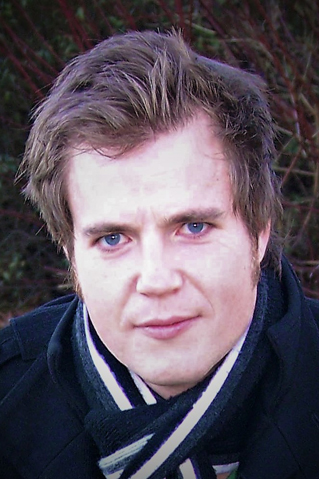 Ake Wahlberg
Ake Wahlberg
Philosophisch-Theologische Hochschule Sankt Georgen
Offenbacher Landstr. 224
D-60599 Frankfurt am Main
Truth and Meaning in the Context of Religious Diversity
The fact of religious diversity raises some recalcitrant questions concerning the rational assessment of conflicting doctrines. On a more fundamental level, the plurality of vastly different reality depictions among the world religions potentially undermines a realist understanding of religion: Can adherents of different religions or denominations, as John Hick and others have claimed, refer to or interact with one and the same divine reality in defiance of enormous doctrinal disagreements? In my PhD thesis, I will draw on Donald Davidson´s semantic theory in an effort to give these philosophical questions a new framing. His treatment of the concept of truth, relying heavily on Tarski but surpassing a purely semantic conception in some important aspects, is the key to this project: Davidson´s understanding of truth and its ties to linguistic meaning allows for an alternative philosophical approach to the word-world relation and it provides a new setting for rational adjudication in the light of differing belief systems.

